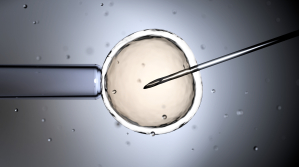
The Swiss Evangelical Alliance (Schweizerische Evangelische Allianz, SEA) has strongly opposed a government proposal to legalize egg donation for women, warning that it raises serious ethical concerns and risks the exploitation of vulnerable donors.
The Swiss Federal Council and parliament are considering a revision to the country’s Reproductive Medicine Act that would allow egg donation for married couples, aiming to help women facing infertility. The SEA, however, argues that the policy change would lead to new moral and social problems rather than solving existing ones.
In a recent statement, the evangelical body said it had carefully weighed the legitimate desire of couples to have children against the broader ethical implications. After thorough theological and ethical reflection, the SEA concluded that egg donation should not be introduced as a legal norm in Switzerland.
The evangelical body has concluded that egg donation should be rejected as a policy norm because of the potential risks of exploitation for would-be mothers, alongside other health risks and the destruction of human embryos.
“Should egg donation be permitted in Switzerland—similar to sperm donation in cases of male infertility?” the SEA asked rhetorically.
“The parliamentary motion ‘Fulfilling the desire to have children, legalizing egg donation for married couples’ calls for this and the Federal Council wants to revise the Reproductive Medicine Act accordingly.
“The Swiss Evangelical Alliance/SEA has taken the current discussion as an opportunity for a detailed and careful consideration, particularly from a theological and ethical point of view.”
The perspectives of everyone involved must be taken into account in concluding a Christian ethical viewpoint on the issue, the SEA said.
“Christian ethics understand life as a gift from God that is beyond the complete disposal of man. Nevertheless, as the ancient biblical texts show, an unfulfilled desire to have children can be associated with great suffering and the possibility of medically assisted reproduction can therefore be a valuable gift.”
Even so, ethical questions must not be ignored and the SEA stated that these included risks associated with egg donation stemming from the exploitation of women who donate eggs due to financial need.
“This would potentially undermine the ban on trading in human reproductive material enshrined in the Federal Constitution,” the SEA pointed out.
“Furthermore, when weighing up the interests of both the donors and the children conceived using donated eggs, greater consideration must be given to their welfare: The necessary medical interventions are associated with health risks for the donors that should not be underestimated.”
For the children concerned, the SEA queried how questions of identity would affect them, and the evangelical organization foresaw no route for them to exercise their rights to know their origins.
“The mass production and destruction of embryos associated with egg donation is also ethically questionable, as the beginning of human life cannot be precisely defined in scientific terms,” added the SEA, which also doubted if legalization would solve issues related to reproductive tourism in the country.
“In short, the introduction of egg donation in Switzerland creates more problems than it solves and is associated with considerable moral concerns.”
Furthermore, the SEA emphasized that it takes the suffering of those affected by childlessness seriously and approached the issue with compassion and sensitivity.
The church should ideally be the platform to find healing and wisdom about the issue, the SEA added.
“The church in particular can and should be a place where people can find compassion and comfort and experience that they are part of a family, even if they do not have children of their own. In addition, the Christian faith offers a hopeful perspective at a time when more and more people are delaying having children because they have no hope of a future worth living.”





